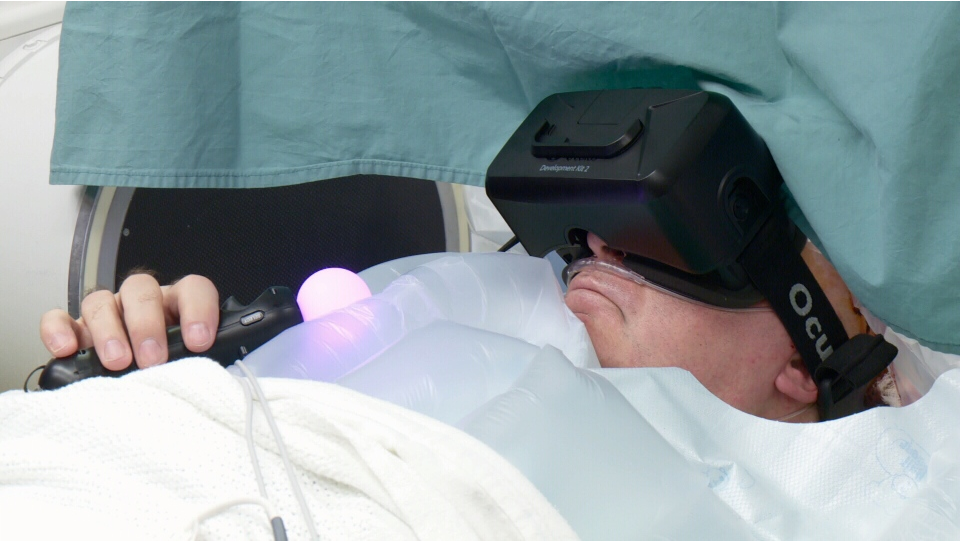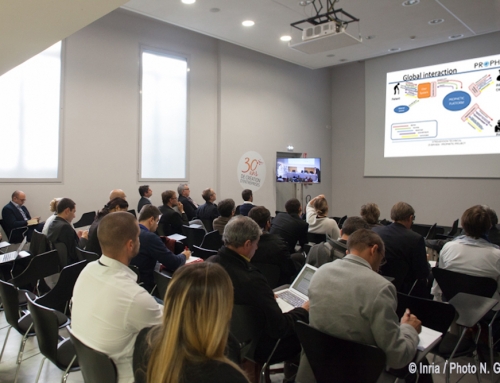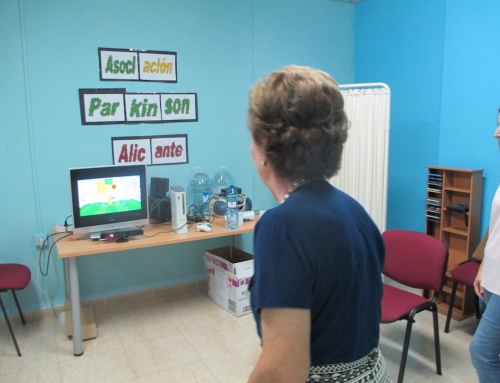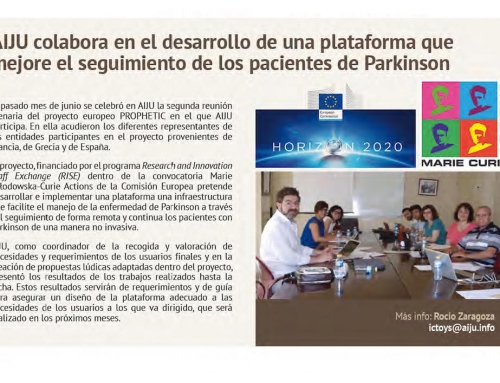It’s used to play video games and treat phobias. Now virtual reality may have a new application: helping Parkinson’s patients heal themselves. It is cutting-edge research happening at The Ottawa Hospital. The hope is to train patients to control the area of their brain affected by Parkinson’s.
Inside an operating room at the Ottawa Hospital, patient Gilles Cloutier has agreed to participate in this brand new research. Cloutier is the 3rd subject, participating while he undergoes a treatment for Parkinson’s disease, called Deep Brain Stimulation.
With the use of 3-D goggles and virtual reality, researchers with the University of Ottawa Brain and Mind Research Institute are hoping to teach Parkinson’s patients like Cloutier to take control of their brain signals.
‘We are trying to use the virtual reality world to train people to control their brain activity in real time,’ says Dr. Adam Sachs, a neurosurgeon at The Ottawa Hospital and researcher at The University of Ottawa Brain and Mind Research Institute, ‘so it’s like a biofeedback system arising directly in the area of the brain that is affected by Parkinson’s disease.’
Once the goggles are on, Cloutier is told to change the color of a virtual ball with his mind. Thinking about a rigid movement will change it orange; thinking of something smooth will change it blue.
Chadwick Boulay is a researcher specializing in brain computer interface and is helping conduct the research, ‘There’s some good evidence that shows patients can control their brain signals, the same signals that are important for their disease,’ he says, ‘We don’t know whether controlling those brain signals will improve their behavior. That’s what we hope to do in the coming months.’
Cloutier, who is 57, was diagnosed with Parkinson’s more than 20 years ago. It has affected his movements, his energy, his entire life.
‘It’s not only debilitating for me,’ he says, ‘but my family.’
There is no cure for this debilitating disease that affects more than 10 million people worldwide.
Cloutir, who is a former computer programmer with the federal government knows that technology may be the ultimate key to unlocking the mystery behind the disease.
‘Knowing what they can do,’ he says, ‘I want to be part of it. If I can help even that much, I want to be a part of it.’
The research is still in its infancy, too late to change the course of the disease for Cloutier but perhaps not for those following behind him.
‘I think it’s right out of a sci-fi book,’ Cloutier adds.
Now the question is, if the brain can possibly be trained to treat Parkinson’s symptoms, what other applications might this technology have? Perhaps stroke patients or those with ALS?
The answers are years away but the possibilities are encouraging.








